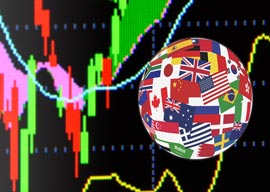
October 17, 2015

Source: Shutterstock
Of course, doctors make mistakes; the most eminent oncologists, for example, sometimes are erroneous in the prognosis. But the admission of personal error in the book contains a pretty damning indictment of the economics profession as a whole: like most others, he says. They were mistaken, and not just in matter of detail. They were like airline pilots who set out for New York and landed at Tashkent.
A little further on, there is an even more astonishing passage:
Banks, regulators and rating agencies have increasingly been relying on quantitative models to assess their exposure to credit risk. These models are still in their infancy…. Regrettably, most of these models shared a common weakness. In the data they have used there are relatively few loan defaults and low levels of loan losses, leading the modellers to assume mistakenly that it was very unlikely that many borrowers would default at the same time. The models failed to recognize that in a deep recession…the rate of loan defaults and loan losses can rise sharply, resulting in much bigger losses than these models predict.
I rubbed my eyes when I read this, and read it again to make sure that I had read it aright. I am neither economist nor mathematician, but on the basis of the most elementary common sense I would have predicted that defaults did not occur stochastically, at random, independent of general prevailing economic conditions (such as interest rates and so forth), and that any model that predicted that they did could and should have been consigned at once to the wastepaper basket.
There are at least two possible explanations of this extraordinary story: that the modelers were as lacking in general knowledge as the fact-checker who once asked me to provide evidence that this Napoleon (as he called him) was an emperor, or that they were completely corrupt because it was in their economic interest to pretend that there was no possibility of default on loans occurring together.
I am a pedant at heart. A pedant is a person who seeks out error with infinitely more gusto than he seeks truth. I have rarely spent £1.99 more wisely.